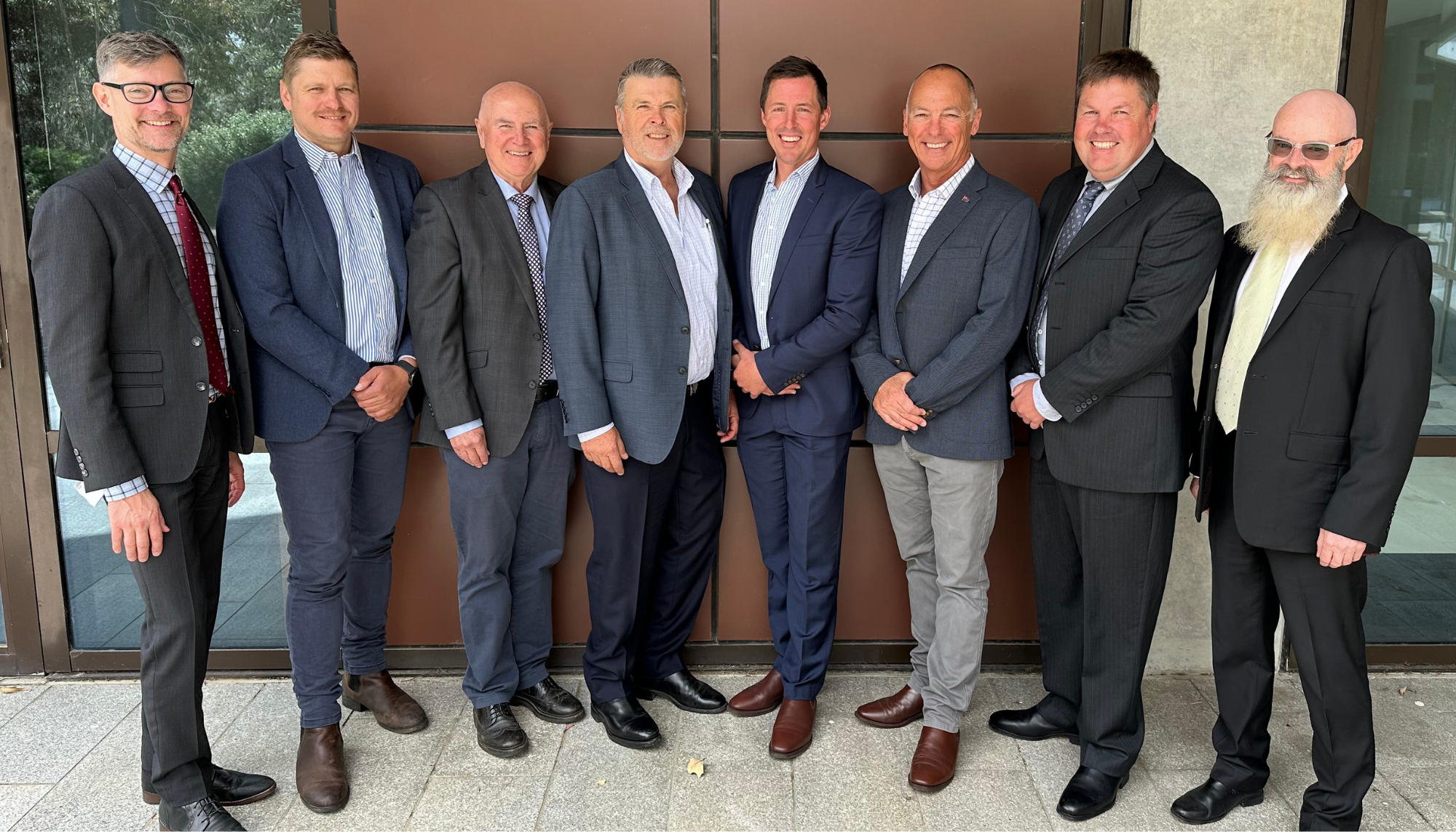Female genomic testing takes off
Australian dairy farmers continue to smash genomic records with 51 per cent more females tested this past year.
A total of 92,986 dairy females were genomically tested during 2022-23, according to DataGene.
This 51 per cent increase is the largest year-on-year jump since the 136 per cent increase in testing between 2018-19 and 2019-20.
DataGene Chief Executive Matt Shaffer told the organisations’ Annual General Meeting recently that female genomic testing is a “game-changing opportunity” for Australian dairy farmers.
“It allows them to accurately identify the most profitable replacements soon after birth,” Dr Shaffer said.

DataGene board 2023
L-R: Matt Shaffer, Daniel Mead, Graeme Gillan, Jeff Odgers, Tim Jelbart, Jim Bruce, Alex Ball and Colin Daws.
Absent Sam Simpson
“By quantifying the invisible, genomic testing creates opportunities to fast-track herd genetic gain and productivity as well as diversifying income streams and enhancing business agility.”
Bull genomic testing also increased by 42 per cent to a total of 8650 bulls in 2022-23 – another genomic testing record.
Increasing Australian genomic testing rates is a high priority for DataGene as genomic information not only helps on-farm decision making, but this DNA information also underpins the development of new Australian Breeding Values (ABVs) and the strengthening of existing ABVs.
An example of the effect of extra data collection assisting the industry is the increase in ABV reliability of young sires.
The Balanced Performance Index (BPI) reliability of young Holstein sires has increased 1 per cent since 2020 and for young Jersey sires this has risen 5 per cent.
Dr Shaffer said this increase in BPI reliability means farmers and breeding advisers can select Good Bulls for their breeding program with even more confidence that they will deliver on their genetic potential.
Other genetic trends highlighted at the DataGene AGM included the rise in the average rate of genetic gain for BPI in sires of cows.
The rate of genetic gain in Holsteins has increased from $28.82 per cow/year to $32.62/cow/year, during the past five years.
For Jerseys the 10-year trend is $15.76/cow/year and during the past five years this has risen to $16.54/cow/year.
Benefit-cost ratio
This news comes as its revealed DataGene is on track to deliver $638 million to the Australian dairy industry through improvements in genetic gain, breeding efficacy, herd and data management decisions and use over 30 years.
This benefit came from an analysis commissioned by DataGene and Dairy Australia and completed by independent economic advisors Marsden Jacob Associates to better understand the impact DataGene has had on the Australian dairy industry since its inception in 2016.
The analysis showed DataGene delivered a benefit-cost ratio of 17.9 to 1 – comparable to work completed overseas.
DataGene Chair, Graeme Gillan told the AGM this benefit-cost ratio demonstrated the power of genetics and how it compounds over years.
Connecting data
The AGM also provided an update of how DataGene is working to connect additional sources of farm data to the Central Data Repository – the dairy industry’s data hub which contributes to a variety of on-farm and research gains.
DataGene is tackling this challenge from multiple angles. Progress was reported through two initiatives: the International Dairy Data Exchange Network (iDDEN) and the Data Connect project.
Dr Shaffer explained that the iDDEN has agreements with Delaval, GEA, Lely, Afimilk and Smaxtec to contribute on-farm data to the Central Data Repository, but developments with this technology and service has been challenged by the speed the equipment manufacturers can connect and Australia’s place in the international queue.
In preparation for this connection, DataGene has initiated ‘Data Connect’ – a short to medium-term data exchange solution – to help farmers exchange and integrate herd and farm management data.
Dr Shaffer said as part of the Data Connect project DataGene installed Ori-automate software from Lactanet in Canada on a GEA farms and a DeLaval farm. This has provided a proof of concept with daily data from these farms now flowing into the system.
New directors
The AGM also confirmed the appointment of two new DataGene directors and the reappointment of Western Victorian dairy farmer Sam Simpson.
New director Alexander Ball owns and operates a stud beef enterprise at Armidale, New South Wales and while working for Meat and Livestock Australia (MLA) he led the implantation of the Meat Standards Australia (MSA) index and MSA optimisation, managed the national sheep recording program, Sheep Genetics, and managed a variety of national R&D programs.
Alexander has also worked as the Herefords Australia Chief Executive and Company Secretary and now operates his own consultancy service, Rural Analytics.
Viking Genetics Country Manager, Australia and New Zealand, James (Jim) Bruce will also join the DataGene board.
Jim has worked in the Australian genetics supply chain for most of his career and has experience in both dairy and beef as well insights into different systems in the United States of America, Canada, and France.
For more information contact: DataGene 1800 841 848 or abv@datagene.com.au or www.datagene.com.au.
DataGene is an initiative of Dairy Australia and the herd improvement industry.


